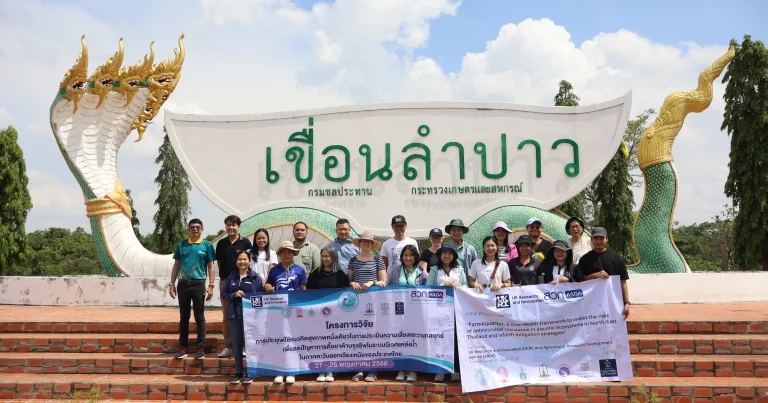11 Jul 2025
Officials hope the scheme will develop “sustainable” solutions for the problem.

The University of Glasgow has launched a “groundbreaking” £1 million project researching antimicrobial resistance (AMR) in aquatic ecosystems.
The university’s School of Biodiversity, One Health and Veterinary Medicine (SBOHVM) is collaborating on the project, FarmAquaNet, in partnership with Chulalongkorn University in Thailand.
FarmAquaNet is comprised of a multidisciplinary team of researchers from Scotland and Thailand seeking to improve understanding of how AMR spreads through water systems.
Operating under the one health framework, the team will conduct fieldwork and both environmental and laboratory analyses as well as engaging with local communities.
The scientists hope to develop “practical, sustainable solutions” to the issue that can not only be implemented on a local scale, but also inform global strategies to combat AMR.
The project received a £1 million grant from the UKRI Southeast Asia Collaboration on Infectious Diseases and is also being co-funded by Thailand’s Agricultural Research Development Agency.
SBOHVM head Christopher Loughrey said: “Our collaboration with Chulalongkorn University reflects a shared commitment to advancing the principles of one health.
“Together, we are addressing some of the most urgent global health challenges, including antimicrobial resistance in aquatic ecosystems.
“This project is a powerful example of what can be achieved when institutions invest in long-term relationships and work across borders and disciplines to create meaningful change.”